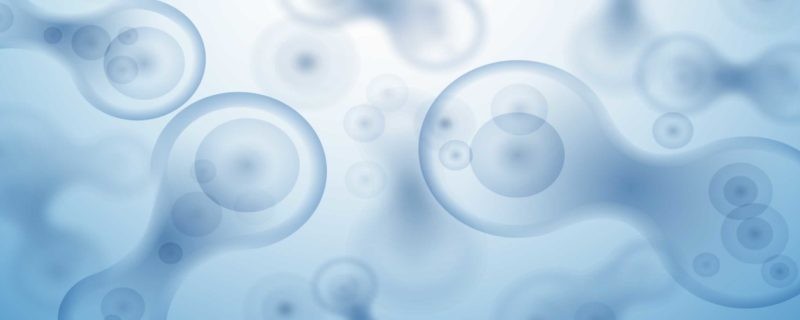
Transferrin – Nature’s solution for iron replacement in serum-free culture
Iron is an essential part of any media formulation, and this is especially true of media that do not contain fetal bovine serum. Cells need the right amount of iron at the right time to maintain health and to continue to grow and divide. Too little or too much iron leads to poor growth and productivity. In nature, iron is delivered to cells through the iron binding protein transferrin that is present in mammalian blood. Transferrin is a universal iron carrier designed to deliver the appropriate amount of iron to cells in a receptor-mediated transfer of iron from transferrin to the cell. Specific transferrin receptors on the surface of cells up regulate or down regulate iron-bound to transferrin based on their iron need. Transferrin is uniquely able to deliver only the amount of iron needed by the cells. This is important because it eliminates the problem of cells taking in too much iron and causing cell damage, which can happen with other iron sources.
Fetal Bovine Serum contains transferrin, but in Serum-free systems, the lack of transferrin can lead to poor performance. Therefore, when formulating serum-free media formulations, iron has to be added to compensate for the absence of iron and transferrin in serum. Bovine blood transferrin and human donor blood derived transferrin can be used to supplement for the missing transferrin, but the use of animal products or blood donor derived products raises the risk of pathogen contamination and can lead to variability due to the nature of the raw material that is used to make these products. In an effort to achieve completely animal-free cell culture many have chosen to add iron instead of transferrin. Iron is animal-free, provides iron to cells, is very inexpensive, and easy to obtain. The challenge to using iron is that iron can cause oxidation reactions that can damage cells and it is relatively tricky to establish the right balance of iron within the cell when using these alternatives. In addition, iron can cause difficulties in downstream processing by fouling expensive chromatography resins. Another problem is that direct iron supplementation is not as effective as transferrin in many of the leading cell lines used in bioscience research including hybridoma, stem cells, and vero cells.
Today, cell culture scientists have an alternative to human serum derived transferrin or bovine transferrin thanks to recombinant DNA technology. Recombinant Transferrin is now available as a way to improve iron delivery and maintain animal-free culture. And, because of the effectiveness of transferrin, using 10 mg per liter of media is sufficient for most cell lines, half the amount needed with bovine transferrin. The newer sources of recombinant transferrin are also more cost effective at both bench scale and large scale than the native bovine or human blood derived proteins. (See Chart). With recombinant transferrin supplements now broadly available from multiple suppliers, the Cell Culture Dish believes the best answer is to utilize recombinant transferrin in cell culture media.
Related Blog List
| Type | Product | Cost Per Liter of Media | Animal-free, Animal Derived | Recombinant or Native Components |
|---|---|---|---|---|
| Insulin-Transferrin Supplement | InVitria ITSE Animal-free | $10-12 | Animal Free | Recombinant |
| Fisher Sci AF ITSE | $12-$14 | Animal Free | Recombinant | |
| Corning/Mediatech ITS | $15-20 | Animal Derived | Native | |
| Invitrogen ITS-A | $20-25 | Animal Derived | Native | |
| Invitrogen ITS-G | $20-25 | Animal Derived | Native | |
| Invitrogen ITS-X | $20-$25 | Animal Derived | Native | |
| Gemini BIO ITS | $20-25 | Animal Derived | Native | |
| Sigma ITS | $12-15 | Animal Derived | Native | |
| ThermoFisher ITS | $12-15 | Animal Derived | Native | |
| BD ITS + | $12-15 | Animal Derived | Native | |
| Sciencell ITS | $15-20 | Animal Derived | Native | |
| Recombinant Albumin | InVitria Cellastim | $1-6 | Animal Free | Recombinant/td> |
| Sigma rAlbumin | $1-6 | Animal Free | Recombinant | |
| Fisher Sci rAlbumin | $1-6 | Animal Free | Recombinant | |
| Mediatech cellgro rAlbumin | $1-6 | Animal Free | Recombinant | |
| Sheffield Bioscience Albumin ACF | $1-6 | Animal Free | Recombinant | |